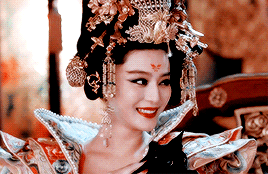#empress of china
Text
Deep blue outfit of Empress Wu
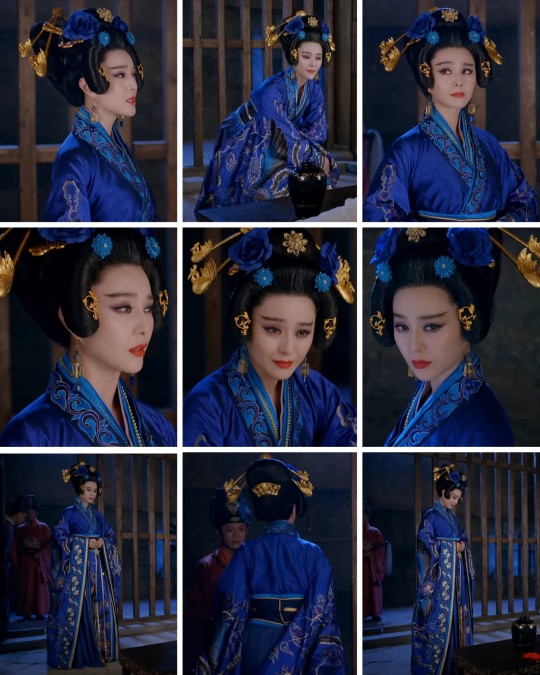
#empress of china#武媚娘传奇#the empress of china#cdramaoutfit#cdrama#wu zetian#tang dynasty#fan bingbing
43 notes
·
View notes
Text
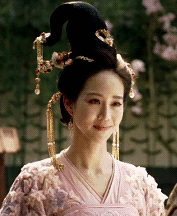

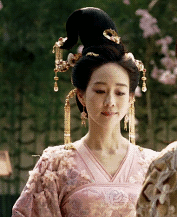

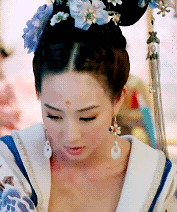


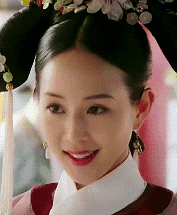

Janine Chang Roles
Ying Rong
Xu Hui
Keliyete Hailan
#legend of ruyi#ruyi's royal love in the palace#novoland tribes and empires#empress of china#tribes and empires storm of prophecy#cdrama#cdramaedit#cdramagifs#cdramas#janine chang#asiandramaedit#asiandramagifs#asiandramas#asiandrama#zefile
86 notes
·
View notes
Text
Oh, brother...aka keeping it in the (royal) family
I recently realized that for some reason “multiple brothers one girl” seems to be a popular category in costume dramas. I am not sure why such sharing is necessary in a polygamous society for fancy royals each of whom can get himself a whole harem, but I am not complaining that it appears any remake of the Hollywood classic “Seven Brides for Seven Brothers” would clearly be changed into “One Bride for Seven Brothers, and Some of the Brothers Spit Blood and Die” if it were a cdrama. Here are some of the dramas at issue.
Liu Shi Shi appears to be the queen of this subgenre to such an extent that I am vaguely wondering if it’s in her contract. We are gonna start with THREE of her dramas:
Bu Bu Jing Xin - Liu Shi Shi has not one, not two, but THREE hot royal brothers, played by Nicky Wu, Kevin Cheng and Lin Gengxin, pine for her time-traveling self. Since this is an exquisite (no, seriously, it’s amazing) period piece about loss and longing, she ends up with none of them, instead of a hot vagely-’cesty gangbang as one might expect from that set-up.
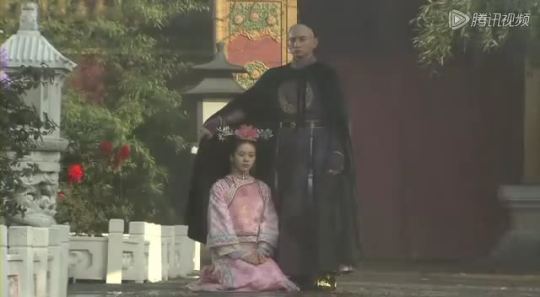
Lost Love in Times - poor Liu Shi Shi, she’s a sexy witch having to pick between William Chan and his shady brother Joe Xu. To make it even trippier, the two actors look like each other, to really hammer the whole “siblings want her” theme.
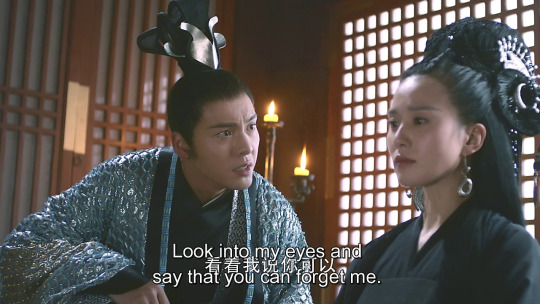
The Imperial Doctress - why bust what’s not broken? It’s the true and tried Liu Shi Shi and hot royal brothers formula. She’s a doctor who spends most of her time practicing medicine, escaping barbarians and creating feminism, not noticing that as she pines for one royal brother played by Huang Xuan, another royal brother, played by infinitely hotter Wallace Huo, is pining for her.
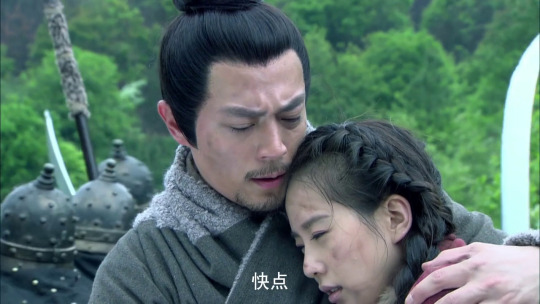
Gong/Jade Palace Lock Heart - if Liu Shi Shi is the queen of that set up, Feng Shao Feng is the king, what with this and Military Seal, both of which star Yang Mi. Clearly, there are worse ways to make a career than stealing Yang Mi from a royal brother. Here, Yang Mi is a spunky time traveler in the middle of Kang Xi’s sons’ fight for the throne. She first falls for Four but ends up with Eight. In between, she offers to bang Four to save Eight as one does. Gives a whole new meaning to sharing is caring and “have you brought enough for the entire class?”
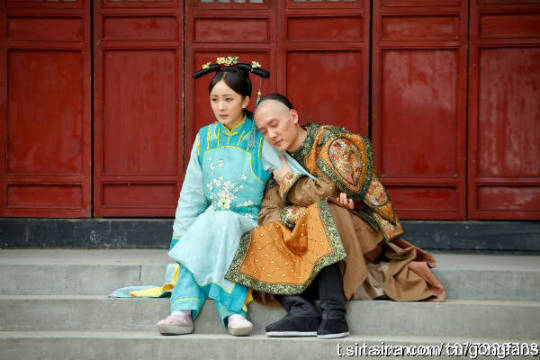
Legend of the Military Seal - Yang Mi and FSF strike again. FSF is madly in love with his brother’s wife, and since she’s not afflicted by blindness, she shares his feelings. Surprisingly, but delightfully, happy ending ensues.
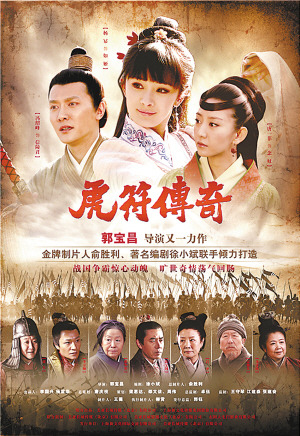
Who Rules the World - more like which brother rules awesome Zhao Lusi’s heart. Going by the rule of “hottest brother wins,” Yang Yang gets the girl in a drama that is pretty yum yum.
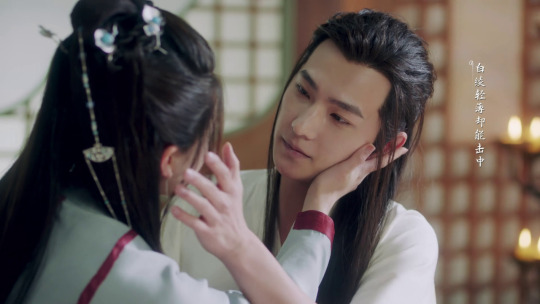
Colourful Bone - one hot seriously whumped out royal brother and one whiny immature one, oh who should the heroine pick? This drama stands for the proposition that you should protect and save abused people, especially if they are hot men, since they will always turn out to be an emperor in disguise. This drama btw is one giant kinkfest for yours truly.
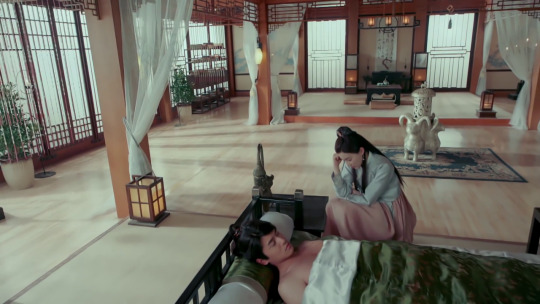
The Eternal Love - you could make THREE whole seasons out of timetravel and brothers into the same girl, who knew.
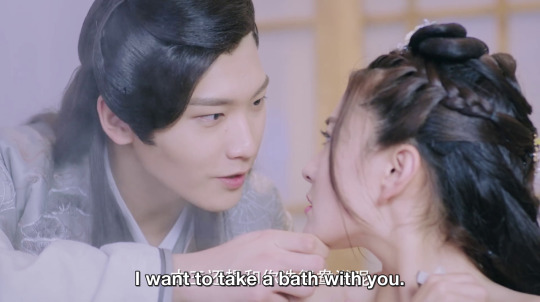
Dreaming Back to the Qing Dynasty - if you’ve seen Gong or BBJX, you know the drill. Horde of queued brothers queueing for the heroine.
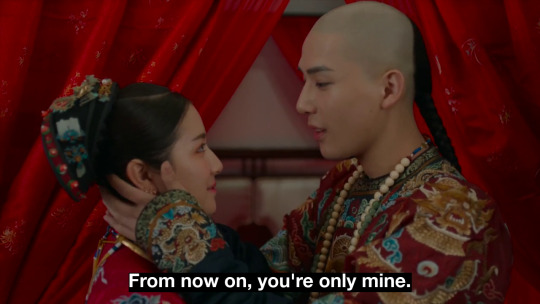
(Mine and all my brothers’, that is -Ed.)
Princess Jieyou - Yuan Hong narrowly escaped the curse of fancying his brother’s woman in BBJX, being about the only sibling not in love with LSS in that one. But clearly, you can’t fight fate and shortly thereafter he’s got to be a sister-in-law luster in a drama of his very own. He is a barbarian general who falls in love with a woman only to discover she’s to marry his brother. Angst and deliciousness and eventual happy ending (the husband fulfilled the uglier brother’s duty by eventually kicking the bucket.)
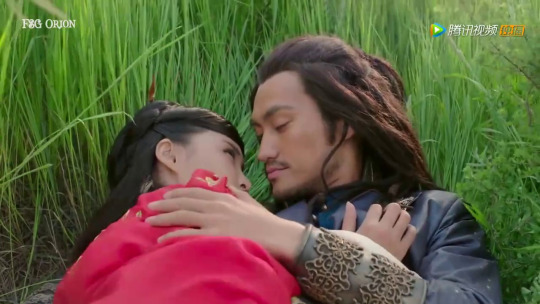
The Promise of Chang’an - if you want to watch brothers with the same woman but no happy ending, and have already watched BBJX, I present this recent drama where Cheng Yi gets to, as always, suffer beautifully watching the woman he loves marry his annoying brother. Pretty much everyone dies at the end of this one, going off to a great big threesome in the sky.
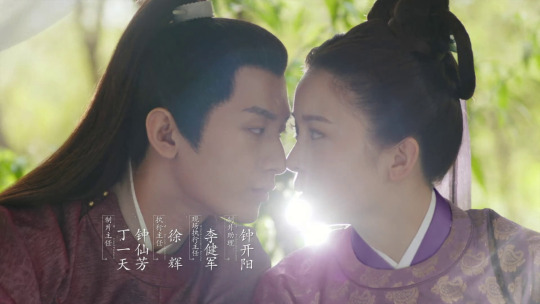
Twisted Fate of Love - will Sun Yi pick the delicate Tan Jianci or the sexy as fuck bastard that is Jin Han? Being a smart woman, she picks the latter and my hormones rejoice.
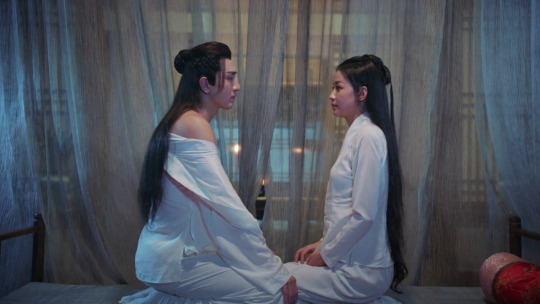
Go Princess Go - this is a drama that parodied every cliche there is, so why not brothers into one woman? Who is actually a man in a woman’s body making it even more delightful!
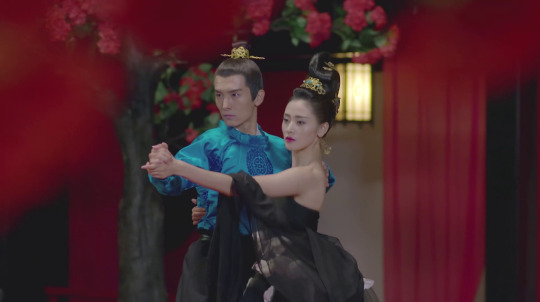
Ashes of Love - even being divine, with women from three separate realms available will seemingly not prevent love interests being a scarce resource leading to sibling love rivalry. Deng Lun and Luo Yunxi duke it out ostensibly for Yang Zi but in reality for who can suffer more prettily. Deng Lun might get the girl, but LYX wins the suffering crown, so it all more or less evens out.
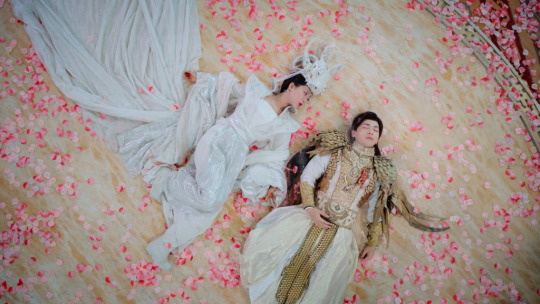
Princess Silver - are siblings in love with the same woman not spicy enough for you? How about TWINS in love with the same woman? One awesome (Aarif Rahman) and one psychotic (Jing Chao) want our heroine and both marry her at one point. Only the awesome one gets to bang her though. (But the psychotic one gets to stick meathooks through his brother in compensation for not being able to stick...ummm...meathook through the heroine, so it’s all OK.)
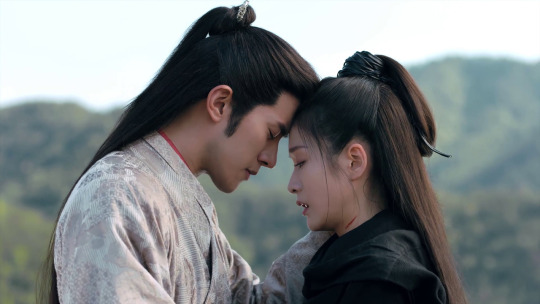
Secret of the Three Kingdoms - and now we are gonna go REAL PERV! If twins are not enough for you, seekers of strong sensations, how about IDENTICAL twins? Ma Tianyu replaces his dead identical twin brother as the last Han emperor and gets to woo Wan Qian (whose plan it was in the first place.) At least she doesn’t need to get used to a new face?

We are gonna end here and not get into father and son sharing the same woman a la Empress of China.
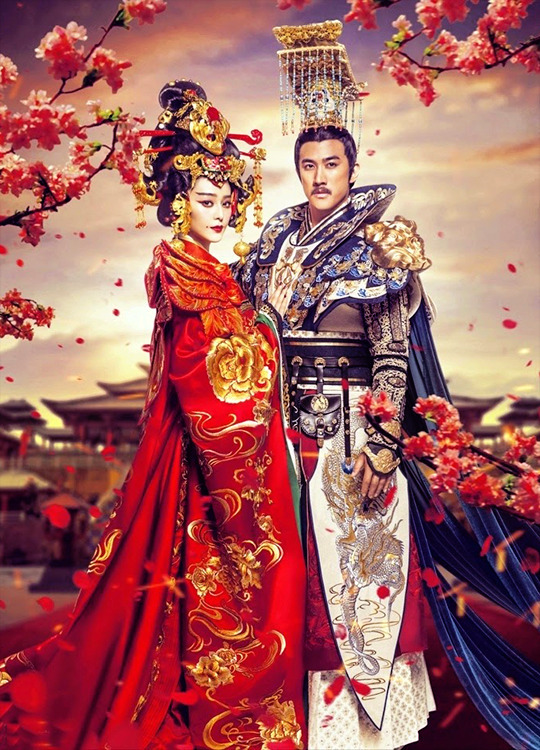
(Congrats to Aarif Rahman for getting to bang both his brother’s and his father’s wives on screen. That is an interesting niche.)
#cdrama#secret of the three kingdoms#princess silver#empress of china#twisted fate of love#jade palace lock heart#lost love in times#the imperial doctress#bu bu jing xin#ashes of love#princess jieyou#the promise of chang'an#legend of the military seal#colourful bone#dreaming back to the qing dynasty#go princess go#who rules the world#the eternal love
100 notes
·
View notes
Text
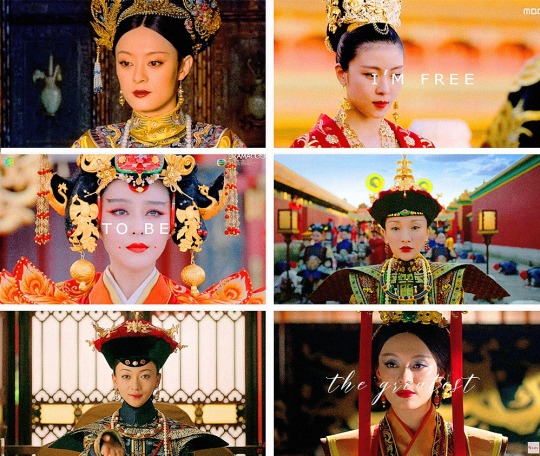
ㅤㅤ— Я вільна бути найвеличнішою серед всіх.
#empresses in the palace#empress ki#empress of china#the legend of ruyi#story of yanxi palace#legend of mi yue#легенда про чжень хуань#імператриця кі#імператриця китаю#легенда про жуї#історія палацу янсі#легенда про мі ює
66 notes
·
View notes
Text
I got going on the previous post and realized I needed to put the photo I'd originally intended to post in a post of its own.
This is Zhang Feng Yi (张丰毅), who portrays Emperor Taizong in Empress of China. He's a veteran actor with a long string of credits, though Western audiences might know him best from Farewell, My Concubine (1993).
While the script is, as I said before, somewhat pedestrian, he does make the most of it, especially in this moment where he is casually lounging on his throne in a bad-ass attitude.

"Yeah, I'm emperor of the Great Tang. Wanna make something of it?"
#frankly he's far more entertaining that she is#Zhang Feng Yi#empress of china#his attitude is stirring some inspiration
2 notes
·
View notes
Photo

Asian Waffles at Empress of China in Delhi NCR
Asian Waffles at Empress of China in Delhi NCR - The Eros Hotel Nehru Place Empress of China, Ready to whip up Waffles with a twist. Date: 20th - 29th May. Lunch and Dinner.
For more information, call us at 011 41331653
0 notes
Text
[Hanfu · 漢服]Chinese Western Han (202 BC – 9 AD) Traditional Clothing Hanfu Photoshoot
“这个位子 我有何坐不得?”
“我欲问鼎天下,试问谁与争锋”
"Why can't I sit in this seat?"
"I want to conquer the world, who can compete with me?"
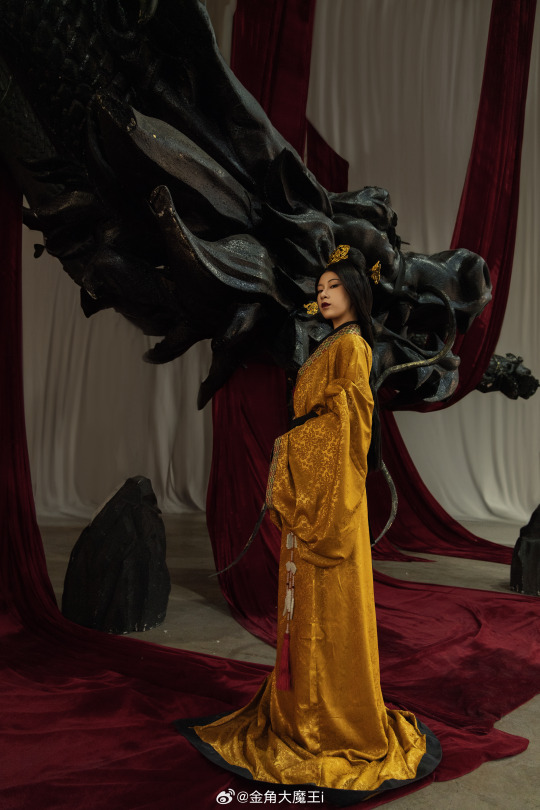
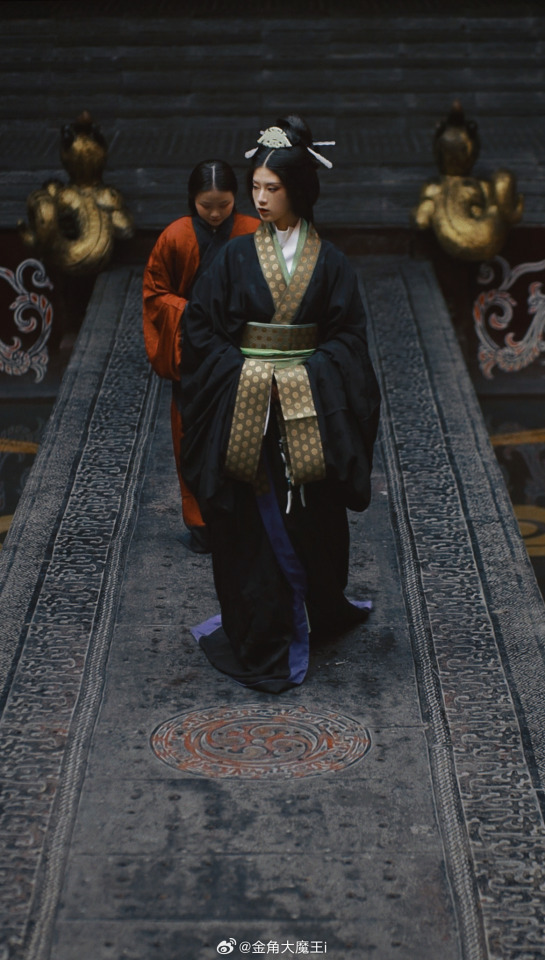
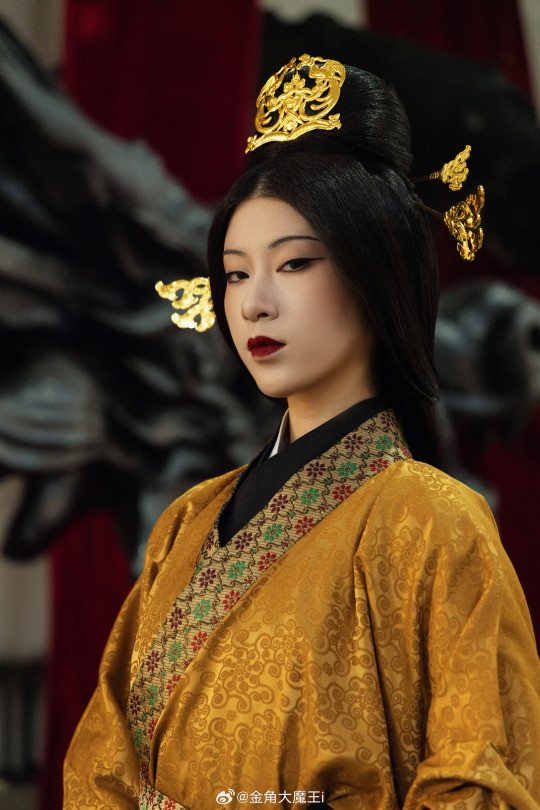
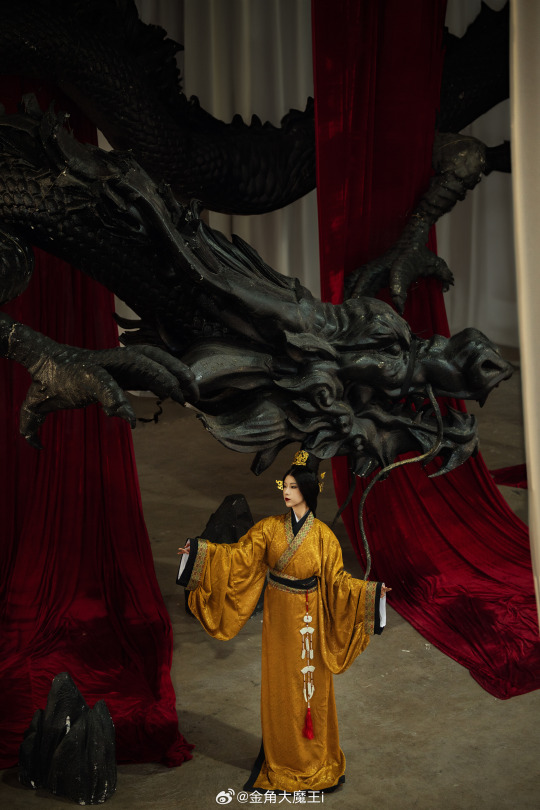

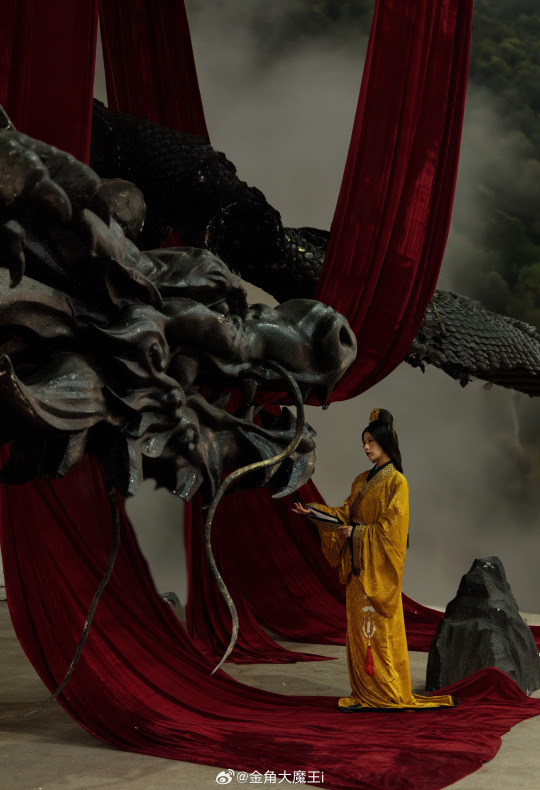


【About The First Empress of the Han Dynasty Empress Lü:Lǚ zhì(吕雉)】
Lü Zhi (241–18 August 180 BC), courtesy name E'xu (娥姁) and commonly known as Empress Lü (traditional Chinese: 呂后; simplified Chinese: 吕后; pinyin: Lǚ Hòu) and formally Empress Gao of Han (漢高后; 汉高后; Hàn Gāo Hòu), was the empress consort of Gaozu, the founding emperor of the Han dynasty. They had two known children, Liu Ying (later Emperor Hui of Han) and Princess Yuan of Lu. Lü was the first woman to assume the title Empress of China and paramount power. After Gaozu's death, she was honoured as empress dowager and regent during the short reigns of Emperor Hui and his successors Emperor Qianshao of Han and Liu Hong (Emperor Houshao).
She played a role in the rise and foundation of her husband, Emperor Gaozu, and his dynasty, and in some of the laws and customs laid down by him. Empress Lü, even in the absence of her husband from the capital, killed two prominent generals who played an important role in Gaozu's rise to power, namely Han Xin and Peng Yue, as a lesson for the aristocracy and other generals. In June 195 BC, with the death of Gaozu, Empress Lü became, as the widow of the late emperor and mother of the new emperor, Empress Dowager (皇太后, Huángtàihòu), and assumed a leadership role in her son's administration. Less than a year after Emperor Hui's accession to the throne, in 194 BC, Lü had one of the late Emperor Gaozu's consorts whom she deeply hated, Concubine Qi, put to death in a cruel manner. She also had Concubine Qi's son Liu Ruyi poisoned to death. Emperor Hui was shocked by his mother's cruelty and fell sick for a year, and thereafter no longer became involved in state affairs, and gave more power to his mother. As a result, Empress dowager Lü held the court, listened to the government, spoke on behalf of the emperor, and did everything (臨朝聽政制, "linchao ting zhengzhi"). With the untimely death of her 22-year-old son, Emperor Hui, Empress dowager Lü subsequently proclaimed his two young sons emperor (known historically as Emperor Qianshao and Emperor Houshao respectively). She gained more power than ever before, and these two young emperors had no legitimacy as emperors in history; the history of this 8-year period is considered and recognized as the reign of Empress Dowager Lü. She dominated the political scene for 15 years until her death in August 180 BC, and is often depicted as the first woman to have ruled China. While four women are noted as having been politically active before her—Fu Hao, Yi Jiang, Lady Nanzi, and Queen Dowager Xuan—Lü was the perhaps first woman to have ruled over united China.
Lü Zhi was born in Shanfu County (單父; present-day Shan County, Shandong) during the late Qin Dynasty. Her courtesy name was Exu (Chinese: 娥姁; pinyin: Éxǔ). To flee from enemies, her father Lü Wen (呂文) brought their family to Pei County, settled there, and became a close friend of the county magistrate. Many influential men in town came to visit Lü Wen. Xiao He, then an assistant of the magistrate, was in charge of the seating arrangement and collection of gifts from guests at a banquet in Lü Wen's house, and he announced, "Those who do not offer more than 1,000 coins in gifts shall be seated outside the hall." Liu Bang (later Emperor Gaozu of Han), then a minor patrol officer (亭長), went there bringing a single cent and said, "I offer 10,000 coins." Lü Wen saw Liu Bang and was so impressed with him on first sight, that he immediately stood up and welcomed Liu into the hall to sit beside him. Xiao He told Lü Wen that Liu Bang was not serious, but Liu ignored him and chatted with Lü. Lü Wen said, "I used to predict fortunes for many people but I've never seen someone so exceptional like you before." Lü Wen then offered his daughter Lü Zhi's hand in marriage to Liu Bang and they were wed. Lü Zhi bore Liu Bang a daughter (later Princess Yuan of Lu) and a son, Liu Ying (later Emperor Hui of Han).
Liu Bang later participated in the rebellion against the Qin Dynasty under the insurgent Chu kingdom, nominally-ruled by King Huai II. Lü Zhi and her two children remained with her father and family for most of the time during this period.
Even after Emperor Gaozu (Liu Bang)'s victory over Xiang Yu, there were still unstable areas in the empire, requiring the new government to launch military campaigns to pacify these regions thereafter. Gaozu placed Empress Lü Zhi and the crown prince Liu Ying (Lü Zhi's son) in charge of the capital Chang'an and making key decisions in court, assisted by the chancellor Xiao He and other ministers. During this time, Lü Zhi proved herself to be a competent administrator in domestic affairs, and she quickly established strong working relationships with many of Gaozu's officials, who admired her for her capability and feared her for her ruthlessness. After the war ended and Emperor Gaozu returned, she remained in power and she was always influential in many of the country's affairs.
In his late years, Emperor Gaozu started favouring one of his younger consorts, Concubine Qi(戚夫人), who bore him a son, Liu Ruyi, who was instated as Prince of Zhao in 198 BC, displacing Lü Zhi's son-in-law Zhang Ao (Princess Yuan of Lu's husband). Gaozu had the intention of replacing Liu Ying with Liu Ruyi as crown prince, reasoning that the former was too "soft-hearted and weak" and that the latter resembled him more. Since Lü Zhi had strong rapport with many ministers, they generally opposed Gaozu's decision but the emperor seemed bent on deposing Liu Ying. Lü Zhi became worried and she approached Zhang Liang for help, and the latter analysed that Gaozu was changing the succession on grounds of favouritism. Zhang Liang invited the "Four Whiteheads of Mount Shang", a group of four reclusive wise men, to persuade Gaozu to change his decision. The four men promised to assist Liu Ying in future if he became emperor, and Gaozu was pleased to see that Liu Ying had their support. Gaozu told Concubine Qi, "I wanted to replace (the crown prince). Now I see that he has the support of those four men; he is fully fledged and difficult to unseat. Empress Lü is really in charge!" This marked the end of the dispute over the succession and affirmed Liu Ying's role as crown prince.
In June 195 BC, Emperor Gaozu died and was succeeded by Liu Ying, who became historically known as Emperor Hui of Han. Lü Zhi was honoured by Emperor Hui as empress dowager. She exerted more influence during the reign of her son than she had when she was empress, and she became the powerful and effective lead figure in his administration.
Lü Zhi did not harm most of Gaozu's other consorts and treated them according to the rules and customs of the imperial family. For example, consorts who bore male children that were instated as princes were granted the title of "Princess Dowager" (王太妃) in their respective sons' principalities. One exception was Concubine Qi, whom Lü Zhi greatly resented because of the dispute over the succession between Liu Ruyi (Qi's son) and Liu Ying. Liu Ruyi, the Prince of Zhao, was away in his principality, so Lü Zhi targeted Concubine Qi. She had Qi stripped of her position, treated like a convict (head shaved, in stocks, dressed in prison garb), and forced to do hard labour in the form of milling rice.
Roles in the deaths of Concubine Qi and Liu Ruyi
Lü Zhi then summoned Liu Ruyi, who was around the age of 12 then, to Chang'an, intending to kill him together with his mother. However Zhou Chang (周昌), the chancellor in Liu Ruyi's principality, whom Lü Zhi respected because of his stern opposition to Emperor Gaozu's proposal to make Liu Ruyi crown prince, temporarily protected Liu Ruyi from harm by responding to Lü Zhi's order that, "The Prince of Zhao is ill and unfit for travelling over long distances." Lü Zhi then ordered Zhou Chang to come to the capital, had him detained, and then summoned Liu Ruyi again. Emperor Hui tried to save Liu Ruyi by intercepting his half-brother before the latter entered Chang'an, and kept Liu Ruyi by his side most of the time. Lü Zhi refrained from carrying out her plans for several months because she feared that she might harm Emperor Hui as well.
One morning in the winter of 195-194 BC, Emperor Hui went for a hunting trip and did not bring Liu Ruyi with him because the latter refused to get out of bed. Lü Zhi's chance arrived, so she sent an assassin to force poisoned wine down Liu Ruyi's throat. The young prince was dead by the time Emperor Hui returned. Lü Zhi then had Concubine Qi killed in an inhumane manner: she had Qi's limbs chopped off, eyes gouged out, ears sliced off, nose sliced off, tongue cut out, forced her to drink a potion that made her mute, and had her thrown into a latrine. She called Qi a "human swine" (人彘). Several days later, Emperor Hui was taken to view the "human swine" and was shocked to learn that it was Concubine Qi. He cried loudly and became ill for a long time. He requested to see his mother and said, "This is something done not by a human. As the empress dowager's son, I'll never be able to rule the empire" From then on, Emperor Hui indulged himself in carnal pleasures and ignored state affairs, leaving all of them to his mother, and this caused power to fall completely into her hands.
When Lu first came to the court, she planned to establish the Lu family members as "kings (nobles)". This was not only to commemorate her deceased relatives, but also to strengthen her power in the court. However, Wang Ling, the prime minister at the time, immediately pointed out that the great ancestor Liu Bang(Husband of Lu, founding emperor of Han Dynasty)once killed the white horse and agreed that "if someone who are not Liu family be come the king, the whole world should attack them." Therefore, the move of establishing a foreign surname as the king violated the ancestral system established by Liu Bang and was really inappropriate.
Faced with the obstruction of Wang Ling, Empress Lu responded by deposing him and insisting on honoring her deceased father and two brothers as King Lu Xuan, King Wu Wu, and King Zhao Zhao. After setting this precedent, Lu was out of control. She not only named her three nephews Lu Tai, Lu Chan, and Lu Lu as King Lu, King Liang, and King Zhao respectively, but also named her grandnephew Lu Tong. He was the King of Yan, and his grandson Zhang Yan was granted the title of King of Lu.
In addition, there are also quite a few people with the surname Lu who have been granted the title of marquis. As a result, it can be said that many princes surnamed Lu appeared in the court in the blink of an eye. They controlled the government and became the cornerstone and support for Empress Lu to control the right to speak in the court.
Empress Lu's life was emblematic of the intricate power dynamics of the Han Dynasty in ancient China. Born into a modest family, Lu rose to prominence through her marriage to Emperor Gaozu. Her astute political acumen and strategic alliances allowed her to wield significant influence behind the throne. As the mother of several emperors, she orchestrated their ascensions and manipulated court politics to consolidate power for her family. However, her ruthless pursuit of control and elimination of rivals earned her both admirers and enemies. In the end, her ambitions led to her downfall, as her unchecked power and manipulation of succession angered the nobility.As a result, after her death, the Lu family was retaliated and killed by the nobles and courtiers who supported the Han Dynasty, and the family was almost exterminated.Empress Lu's life illustrates the delicate balance of power, ambition, and intrigue in ancient Chinese imperial courts.
Literati in every dynasty in China often likened women who attempted to participate in government affairs and influence national policies to Empress Lü, saying they were vicious. One of them was Wu Zetian, the first official female emperor of China. However, compared with Empress Lü, Wu Zetian was more talented. Unlike Empress Lü, who was simply vicious, she ignored the system and stability of the empire and put personal and family interests first.
________________
📸Photo & Model :@金角大魔王i
🔗Weibo:https://weibo.com/1763668330/NFVOXthxX
________________
#chinese hanfu#Western Han (202 BC – 9 AD)#hanfu#Empress Lü#Lǚ zhì(吕雉)#china history#chinese history#hanfu accessories#hanfu_challenge#chinese traditional clothing#china#chinese#woman in history#漢服#汉服#中華風#金角大魔王i#historical fashion
180 notes
·
View notes
Photo
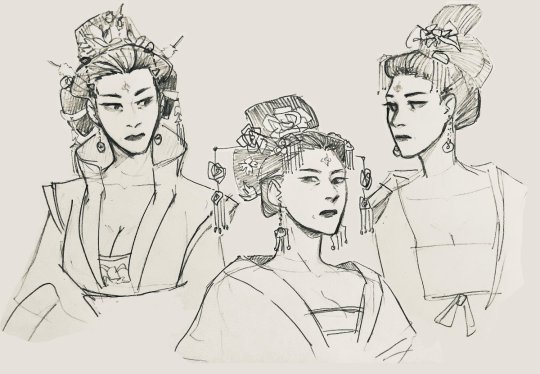
while I’m drawing f!sqq here’s one who’d use chenqie pronouns
#im scared of her and i hope u are too#demon realm say hello to your new mother#era unlikely cleavage#but it's FANTASY historical china after all#outfits referenced from the drama empress of china#rule 63#genderbend#shen qingqiu#scum villain#svsss#sqq#f!sqq#fem!shen qingqiu
758 notes
·
View notes
Text

Women warriors in Chinese history - Part 1
“In the nomadic tribes of the foreign princesses from the Steppes northwest to the northeast of the Chinese borders, women habitually rode horses and were frequently also skilled militarily. They had to be able to survive on their own and defend themselves when their men left camp to herd animals for months on end. Thus, unsurprisingly, many daughters of nomadic and semi-nomadic tribal chiefs were also capable fighters. Madam Pan 潘夫人 of “barbarian origins” during the Wei dynasty, the semi-barbarian Princess Pingyang 平陽公主 who helped establish the Tang dynasty, and the “barbarian queen,” Empress Dowager Xiao, are historical examples of this category of female generals.
While the barbarians to the north were known as fan 番, those belonging to peripheral areas from the southwest to the southeast were known as man 蠻. Like the nomadic princesses, these women of non-Chinese or Chinese ethnic minority groups did not bind their feet and could thus become formidable opponents. Indeed, the female battle units within the Taiping 太平 rebel forces that actually entered combat – rather than merely providing labour as most of the female units did –were reportedly made up in the main of women from the Miao 苗 tribes, aside from the Hakka (Kejia 客家) women of Guangxi.
Female bandit leaders or daughters and sisters of bandit leaders who occupied mountains or established strongholds in marginal lands are almost indistinguishable from the man barbarian princesses of tribal chieftains in novels and shadow plays. Such barbarian women generals and female bandit leaders were rarely privileged enough to be recorded by the historians. The three found most frequently, Madam Xi 洗夫人 (502– 557), Madam Washi 瓦氏夫人 (1498–1557),95 and Madam Xu 許夫人 (1271–1368), were all pro-Chinese. While the first two cooperated with the Chinese government, the third joined Chinese forces against the Mongols. A certain Zhejie 折節 or Shejie 蛇節, a female leader of the Miao tribe, also led a rebellion against Mongol troupes, but she eventually surrendered to them and was subsequently executed.
Real enemies of the Chinese empire, such as the Trv’vy sisters of Vietnam, are hardly ever mentioned by the Chinese, even though they are first recorded in the Han dynastic history. Even under such circumstances, of the women commanders in Chinese history studied by Xiaolin Li, a hefty per cent were from “minor nationalities.”
Female rebel leaders and women warriors in rebel forces tended to rise from peasantry and marginal groups such as families of itinerant performers, robbers, boatmen, and hunters. Many of them are beautiful and charismatic. Most of the rebel groups were basically bandits (known as haohan 好漢, “bravos” euphemistically) – how else could they have survived without a continuous source of income? Many of the bandit groups, like the sworn brothers of the Water Margin, lived in mountains and marshlands, awaiting a chance to start or join in an uprising with the hope of gaining power and legitimacy through either pardon (when they posed too great a threat to the state) or founding a new dynasty. Many had sisters, wives, or daughters who were also capable of leading armies.”
Chinese shadow theatre: history, popular religion, and women warriors, Fan Pen Li Chen
#history#women in history#warrior women#women's history#historyblr#warriors#quotes#women warriors#china#chinese history#asian history#Princess Pingyang#empress dowager chengtian#lady washi#taiping rebellion#trung sisters
150 notes
·
View notes
Text
Black, blue and gold outfit of Empress Dowager Wu

#the empress of china#武媚娘传奇#empress of china#wu zetian#武则天#cdramaoutfit#cdrama#tang dynasty#fan bingbing
21 notes
·
View notes
Text
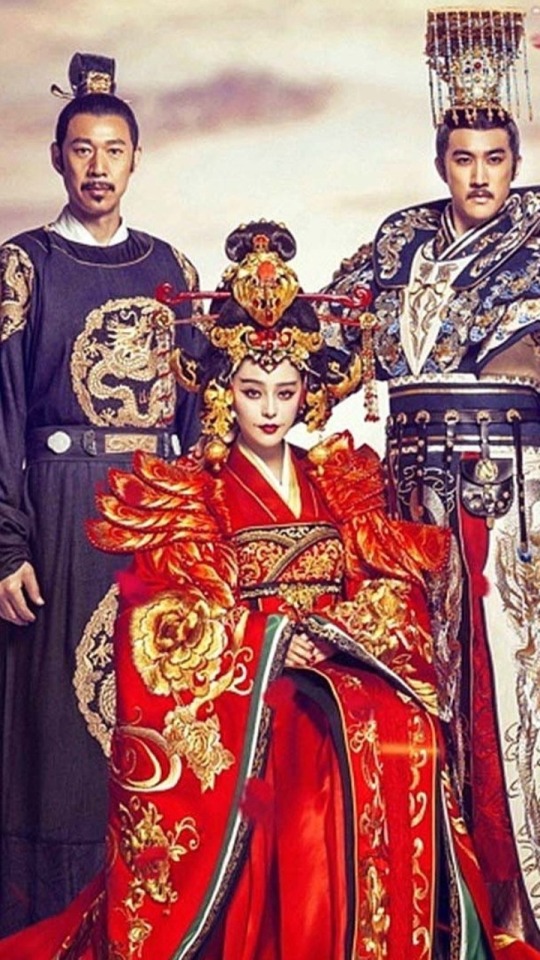
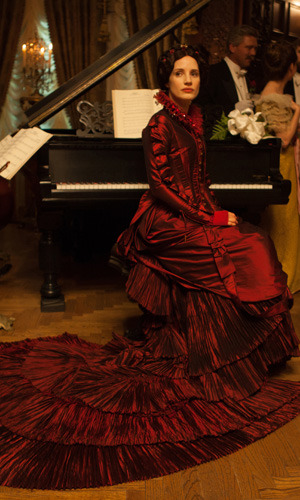
Period dramas dresses tournament: Red dresses Round 3- Group A: Wu MeiNiang, The empress of China (gifset) vs Lucille Sharpe, Crimson peak (gifset)
#period drama dresses tournament#tournament poll#tumblr tournament#polls#fashion poll#wu meiniang#wu zetian#the empress of china#lucille sharpe#crimson peak#red r3
93 notes
·
View notes
Text

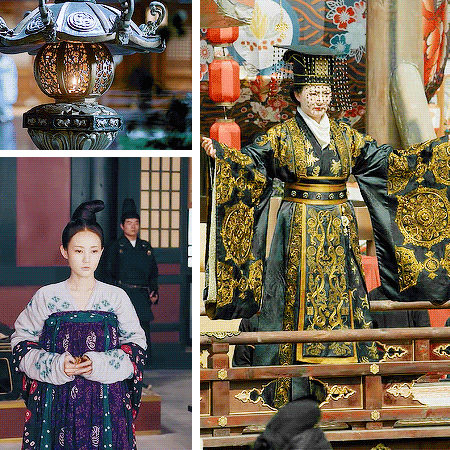
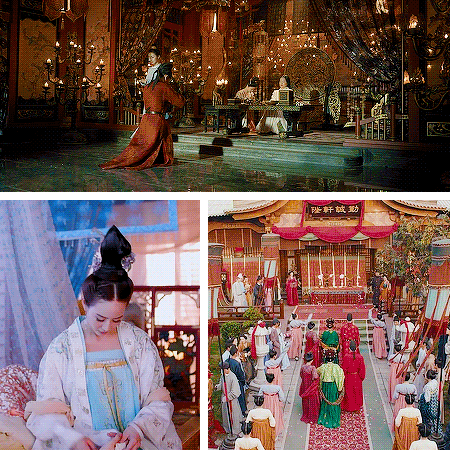

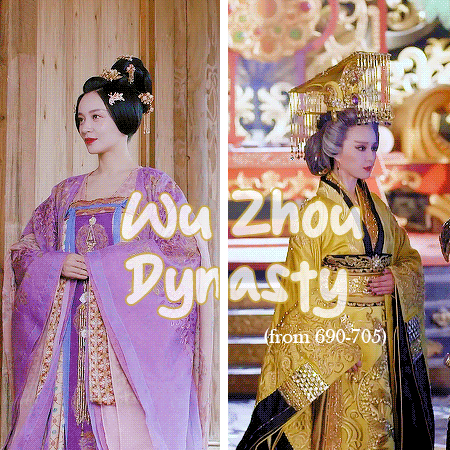
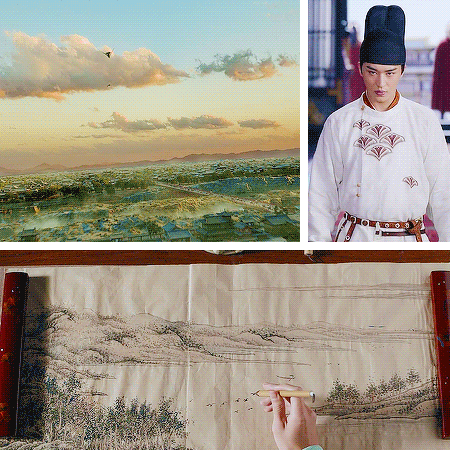


PERIODDRAMA APPRECIATION WEEK 2023
Day 4: Favorite time period/era:
Tang dynasty:
The Tang dynasty, or the Tang Empire, was an imperial dynasty of China that ruled from 618 to 907, with an interregnum between 690 and 705. Historians generally regard the Tang as a high point in Chinese civilization, and a golden age of cosmopolitan culture. The Lǐ family (李) founded the dynasty, seizing power during the decline and collapse of the Sui Empire. (source: wikipedia)
In general, garments were made from silk, wool, or linen depending on your social status and what you could afford. Furthermore, there were laws that specified what kinds of clothing could be worn by whom. The color of the clothing also indicated rank. During this period, China's power, culture, economy, and influence were thriving. As a result, women could afford to wear loose-fitting, wide-sleeved garments. Even lower-class women's robes would have sleeves four to five feet in width. (source)
Wu Zhou dynasty:
Zhou, known in historiography as the Wu Zhou was a short-lived Chinese imperial dynasty that existed between 690 and 705, when Wu Zhao (commonly known as Wu Zetian) ruled as empress regnant.
Despite Wu's infamous rise to power, there is evidence that suggests women were granted more privileges during her reign, and China was in a state of great prosperity during her rule.
Wu Zetian greatly enhanced the prestige and effectiveness of the civil service recruitment tests, filling government positions by skills demonstrated in written examinations, and opening them up to men of all classes. (source: wikipedia)
#luoyang#wind from luoyang#court lady#weaving a tale of love#the empress of china#jiu liu overlord#stand by me#cdrama#asian drama#stuff:mine#perioddramaweek2023
232 notes
·
View notes
Text


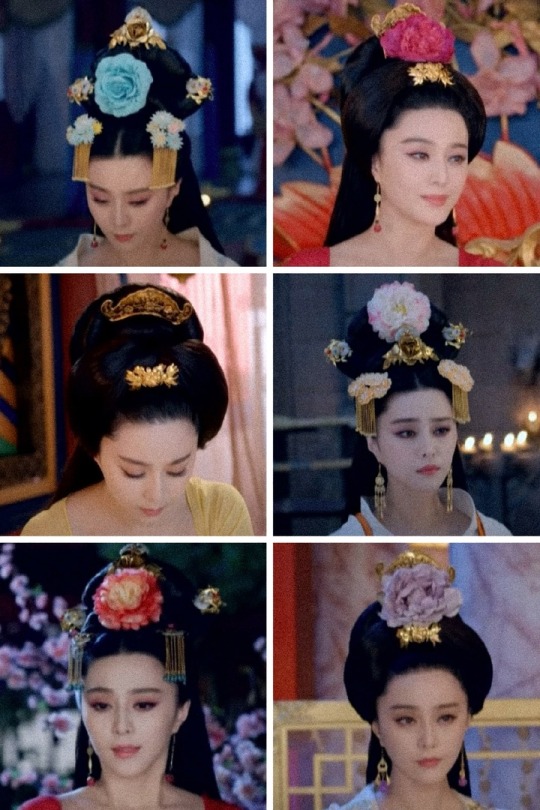
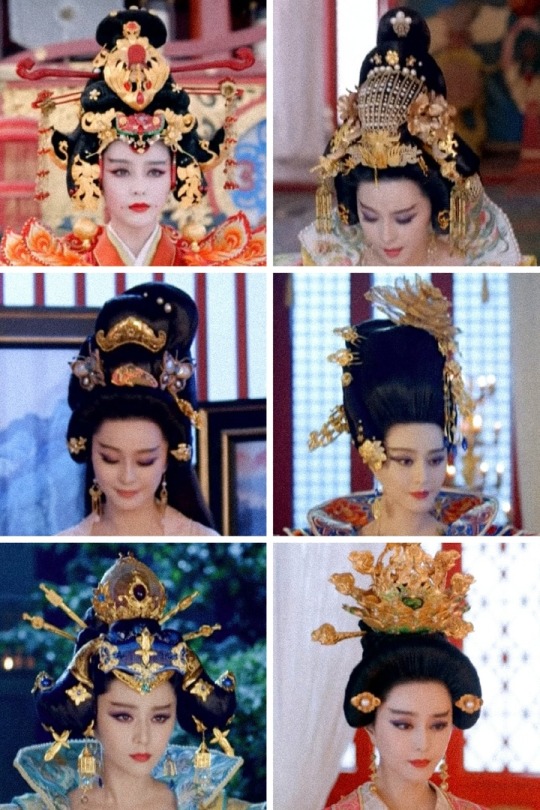


30 notes
·
View notes
Text
Continuity - For Writers, It's a Good Thing
I'm now well over the halfway mark in Empress of China, and Emperor Taizong has finally shuffled off this mortal coil, which means it's the year 549. Which means Our Heroine has (historically), another 56 years to live, 40 of which she was effectively or actually the sole ruler of China. I'm beginning to think this series is primarily about her rise to power and doesn't give a fig about the time she was only Empress Regnant in China's history. Except for her coronation, where she gets to wear a fabulous outfit. I mean, it is seriously fabulous.

Yes, that dragon is 3D. :: clears throat :: Back to my point.
Taizong has died, though not before one final meeting where he and she may or may not have banged. Since Chinese television is far more restrictive about what can or cannot be shown, a lot of this is inference. And here's where things get fun.
Taizong dies and Wu MeiNiang does not arrive in time to see him before he passes. Much sadness, and she creeps off to the rooms where she and Taizong spent some good times (which happens to be where Taizong's empress lived before she died) to weep. Li Zhi, who is now emperor and has been in love with her for some time, though she's often treated him like a little brother, finds her there, and she ends up weeping in his arms.
As was the way of such things, because Wu MeiNang had no children by Taizong, she gets shipped off to a monastery with the other concubines in a similar situation to become a Bhuddist nun. Li Zhi, now Emperor Gaozong, watches from afar, wishing he could find a way to bring her back to the palace. Never mind she was his father's concubine, so he isn't supposed to be lusting after her.
But, turns out Wu MeiNang is pregnant, and through a complicated series of events, ends up back at the palace under the protection of Gaozong, who reveals to the audience that the child is his.

Up to this point, we have been led to believe that the child is Taizong's, because he is the love of Wu MeiNang's life. But now, we are told in a single scene that the night Taizong, who is presented as the love of her life, dies, she and Li Zhi banged in the rooms which used to belong to Li Zhi's mother. And despite all the many, many, many, many times she slept with Taizong (who had no problem getting other women pregnant), nothing happened, but once with Li Zhi, and Bam!
That's problem one. Problem two is that when her pregnancy is reveal, she is waaaaay too far along for this have come from that one night. Timeline is a little shaky for her last night with Taizong, but better.
Then there's problem number three: this change was apparently made in post production. You see, most Chinese dramas are fully dubbed, so tweaks are frequently made in dialogue. And, historically, the woman was having an affair with Li Zhi before his father's death, so that might have been the reason. Or maybe they realized they needed something to tie these two together for the last 20 episodes.
Problem is, this scene is the only place where this idea is addressed. Doesn't come up again, not even in private conversations, with everyone else believing the child was Taizong's. What's more, after she's lost the child and needs a protector in the palace, she tells Gaozong's sister that she couldn't marry him because she doesn't love him, she loved his dad and woe is her, because she suffered such a great loss with the child. Which makes it sound like the child was Taizong.
So, here's the writerly lesson I take away from all this. If you are going to make a major change in your story, go through it thoroughly to make certain you made all the changes necessary so your internal continuity is in line. Then do it again. Third time wouldn't be bad, and good idea to have someone else check it for you. Otherwise, you might leave readers wondering who the real baby daddy is.
I'm so watching this primarily for the costumes because it is way less interesting now that Zhang Fengyi, who played Taizong, is off the screen.

1 note
·
View note
